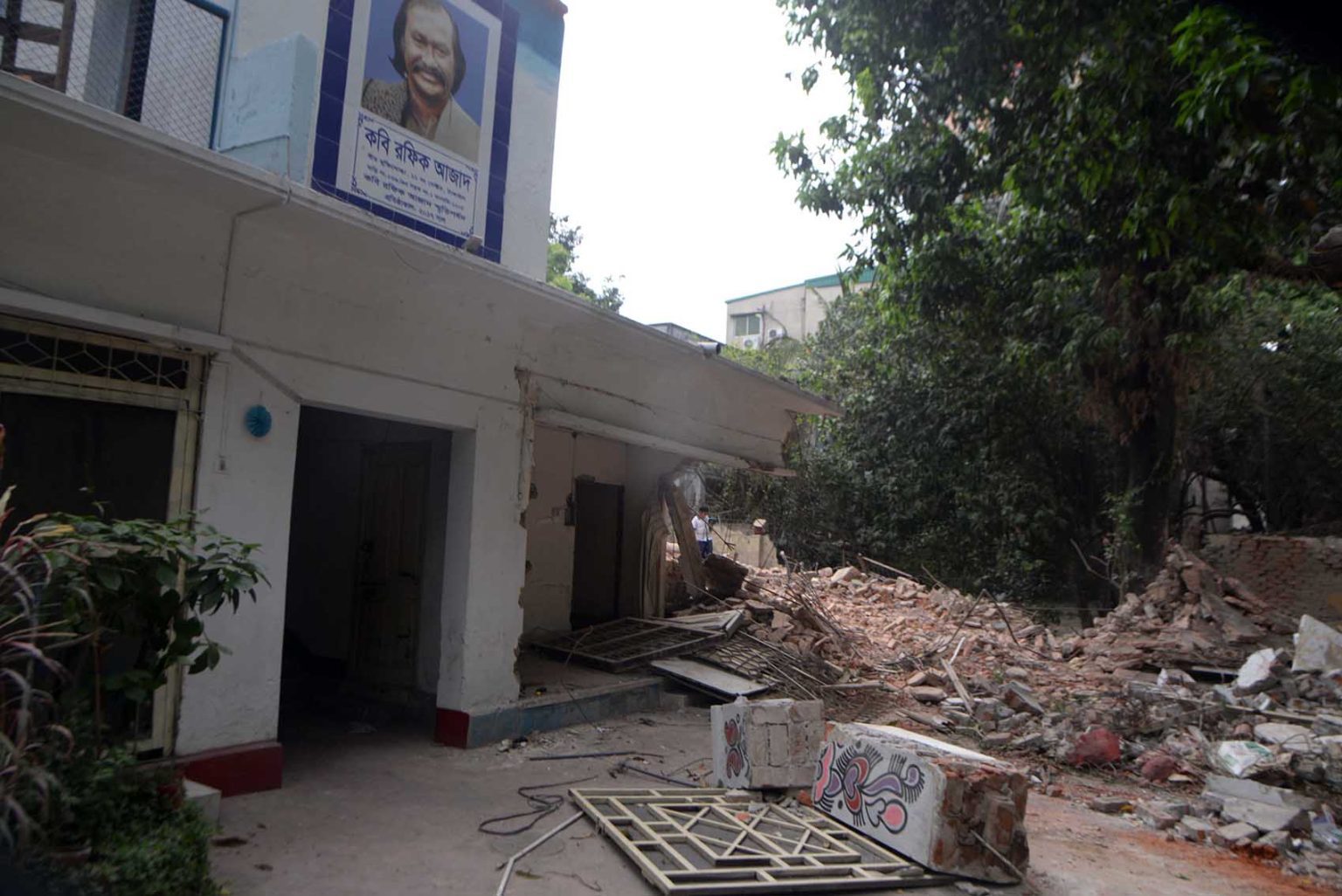A portion of the Dhanmondi residence of the late poet and freedom fighter Rafique Azad was demolished on Wednesday, sparking outrage among his family and supporters.
The house, which holds decades of memories, had been home to the poet and his family for nearly 37 years.
According to the family, the demolition began at around 9:30am under the direction of the National Housing Authority, despite an ongoing legal battle over ownership.
The partial demolition took place even though a court had previously issued a stay order, which had been extended and was still in effect.
The house, located at 139/4A on Road 1 in Dhaka’s Dhanmondi, consists of four residential units. One of the units is occupied by Rafique Azad’s widow, Dilara Hafiz, while the other three had been allocated to other individuals.
On Wednesday, two units on the eastern side of the property were torn down. The house sits on approximately five kathas of land.
Speaking to Times of Bangladesh, Dilara Hafiz, a poet and former professor at Eden College, expressed deep sorrow and disbelief.
“This house is full of Rafique Azad’s memories. Every year, we celebrated his birthday here in spring. Our two children, who live abroad, would return home just to honour their father’s legacy. What happened today is unimaginable,” she said through tears.
“This is the house from which Rafique Azad’s body was taken for his final journey. If the government had waited until after my death, they could have built a high-rise here. My children would not have objected. But today, in front of our neighbours, we were humiliated. The very person who fought for this country has now been evicted,” she added.
On Wednesday afternoon, a visit to the house revealed that the eviction operation was led by Executive Magistrate Tayeb-ur-Rahman Ashiq, accompanied by 30 to 40 personnel from the National Housing Authority. Police blocked off Road 1 in Dhanmondi during the operation.
Utility services, including gas and electricity, were disconnected in the morning, although power was later restored in the evening.
Dilara Hafiz has appealed to the government to preserve part of the house in memory of Rafique Azad, one of the country’s most prominent poets and a veteran of the Liberation War.
She urged the authorities to consider a permanent arrangement for the site in honour of his contributions to the nation.
Records show that in 1988, the estate office temporarily allocated the one-storey house to Dilara Hafiz while she was serving as a lecturer at Eden College.
The official allocation document, signed by then Assistant Director M Begum, stated that the allotment did not confer ownership rights but allowed the occupant to reside there until further notice.
Years later, a man named Syed Nehal Ahad claimed ownership of the property and secured a court ruling in his favour in 2012.
In response, Dilara Hafiz filed a lawsuit against Nehal Ahad, the Housing and Public Works Ministry, and the National Housing Authority. A court issued a status quo order, which was later made permanent in 2013.
The case was subsequently transferred to Dhaka’s 7th Assistant Judge Court, where the next hearing for witness testimony is scheduled for 25 May.
On 15 April, just one day before the demolition, Dilara Hafiz sent formal letters to the Housing and Public Works Ministry’s adviser Adilur Rahman Khan, its secretary, and the secretary of the Ministry of Cultural Affairs, requesting intervention.
Despite the ongoing legal proceedings and court orders, the demolition went ahead the next morning. Efforts to contact Executive Magistrate Tayeb-ur-Rahman Ashiq for comment were unsuccessful, as he did not respond to multiple phone calls.
The incident has raised serious questions about the enforcement of legal protections and the treatment of national figures’ legacies, with many calling for immediate government action to prevent further erasure of cultural and historical heritage.


